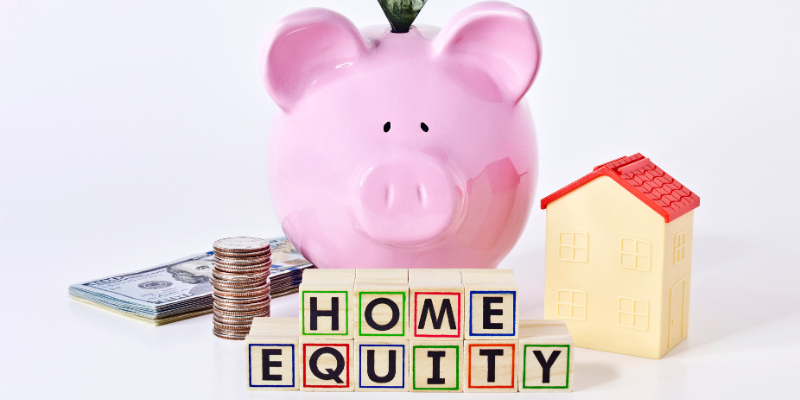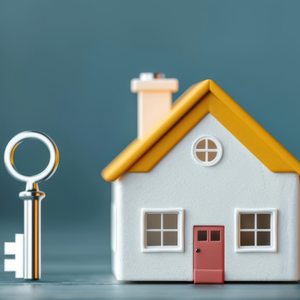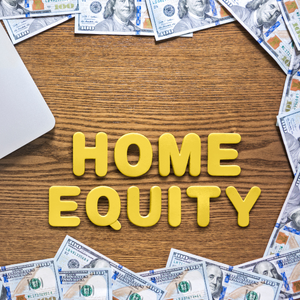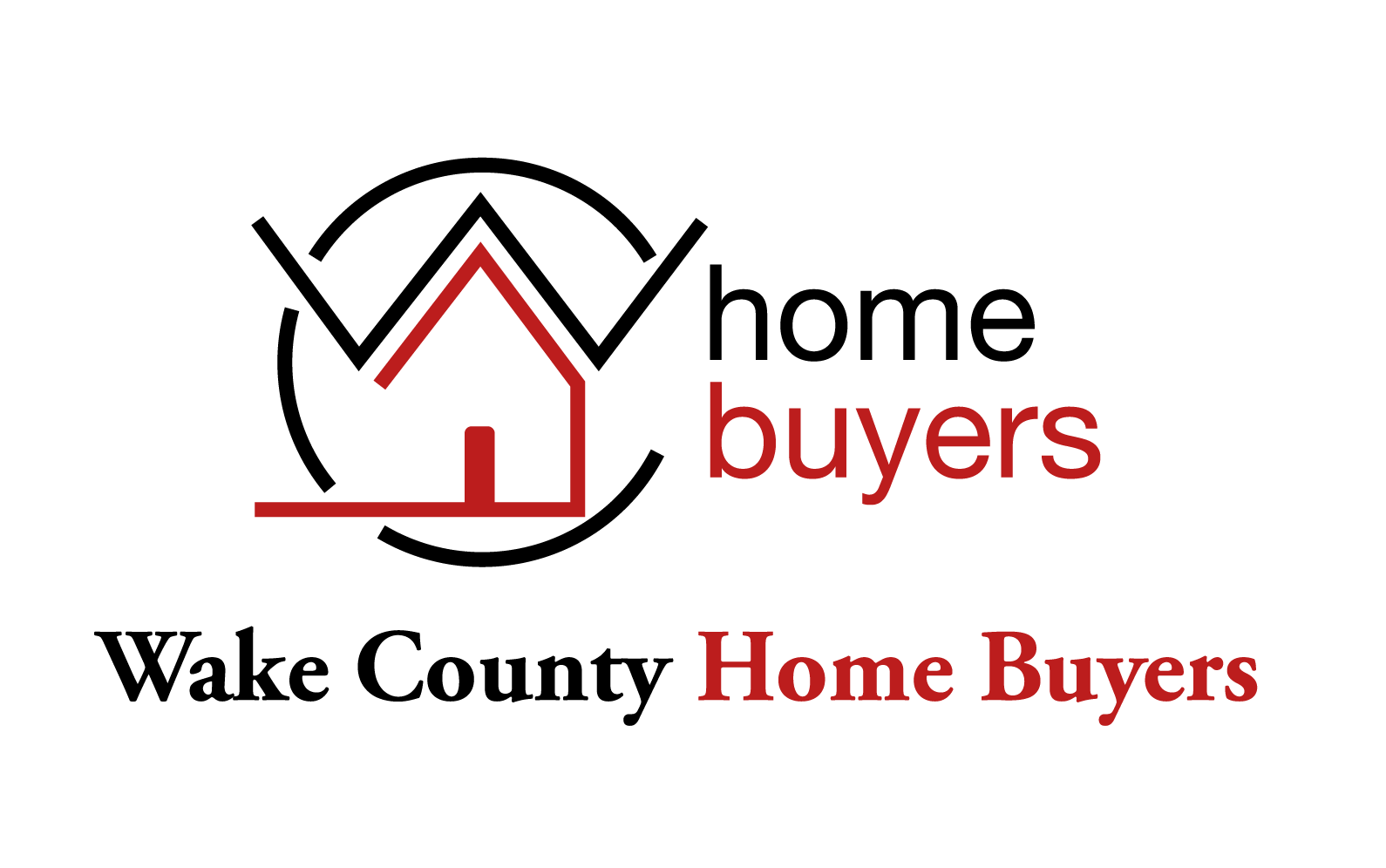
Knowing how much home equity you need to sell your house in Raleigh, NC, is important for your finances. If you want to upgrade your home, downsize, or relocate, home equity will matter, especially since home equity is the current value of your property and any outstanding mortgage balance. With the value of homes in Raleigh and the selling and buying of Raleigh homes evolving, this will allow the strategic position of your sale to capitalize. Wake County Home Buyers is here to help you evaluate your home equity and understand your selling strategy and market trends. This guide will describe the factors that affect your home equity and how to sell your home and improve your finances in this ever-changing region.
Brief Overview
For homeowners in Raleigh considering the sale of their property, understanding home equity is crucial. Home equity is determined by calculating the difference between the market value of the house and the mortgage balance. Home equity builds over time with mortgage payments, rising home prices, and strategic home improvements, and selling potential and overall financial stability will be improved. Equity calculators can help determine market conditions and personal selling goals. Working with investor home buyers in North Carolina and the surrounding areas will optimize the selling process and help get a reasonable cash offer rapidly. Understanding selling costs, including agent commissions and closing costs, is crucial for realistic expectations and maximizing proceeds from the sale.
Key Highlights
- To make profitable selling decisions in Raleigh, NC, understand home equity, which is the value of your home less your mortgage.
- Raleigh’s growing real estate market makes it possible to gain equity significantly over the years.
- To see if your equity is growing and your finances improving, use an equity calculator. It uses the home value and mortgage balance to tell you the current position.
- Pay attention to selling costs in Raleigh because agent commissions and closing costs reduce your net equity.
- In Raleigh, your home equity mostly depends on when you sell the home, what you improve in the home, and what is being built in the area.
Understanding Home Equity in Raleigh
For homeowners in Raleigh, North Carolina, home equity is a crucial concept, particularly when considering the sale of a home. Get a handle on what home equity is and how it appreciates to position yourself to make the most of the local real estate market. This knowledge and insight into your home equity can aid you in selling your home while maximizing its value in the market. In this context, we will take a closer look at the definition of equity in real estate and the ways a homeowner in Raleigh can build it over the years. For homeowners looking to sell quickly and looking for more flexibility in their transactions, cash home buyers in Raleigh and neighboring areas are conveniently available.
What Is Home Equity?
The owner’s home equity represents the value of their property. It is the current value of the property plus the value still owed on the mortgage. It increases because of payments made on the mortgage and the appreciation of the property. Home equity is essential in making decisions on selling, refinancing, or home equity loans, mostly because it shows the value of the property relative to the mortgage. Home equity is one of the reasons homeownership is viewed as a powerful financial asset, for it increases wealth and allows for reinvestment in other properties. Other than wealth, home equity provides stability and the flexibility to accomplish major goals. It is important to manage home equity wisely in order to keep providing the opportunities needed for one to succeed in the future.
How you manage your home equity will affect your finances both positively and negatively.
- Make it a point to check your property’s market value to see how your equity is shifting.
- Paying extra on your mortgage will ensure you build home ownership faster.
- Think about home improvements that will boost your property value.
- Keep an eye on your area’s real estate market so you can make sound financial decisions.
- Starting a business is an excellent way to use your equity to make a smart investment.
- Wise use of your equity will help you build an emergency fund.
- When interest rates fall, you can refinance to build more equity.
How Home Equity Builds Over Time
First, let us describe how home equity builds over time. Given the rising real estate market in Raleigh, North Carolina, knowing how equity builds can provide future financial security. Equity builds when you make a mortgage payment. Each time you make a payment, you pay off the principal balance of the mortgage. You are thus increasing the ownership stake in the property over time. Gradually, your investment builds the balances in the equity accounts and improves financial stability. Apart from principal repayment, equity appreciation is also important. In the real estate market of Raleigh, property cash values appreciate most over time. Homeowners gain without being directly involved. Equity most optimally increases when major decisions are aligned with market appreciation. Holding market appreciation taxes and obtaining credit at a refinancing point helps most with improved equity fixes.

Planned home updates and effective financial planning can help build equity more quickly. Improvements that add value and ease of use, such as new kitchens, energy-efficient systems, and efficient landscaping, will help increase a home’s equity. Homeowners who pay off home equity loans or lines of credit will allow more of their equity to remain intact. In Raleigh, where buyer demand continues to be strong, the benefits of equity include better, more attractive refinance rates and stronger positioning when negotiating home sale prices. In Raleigh’s strong housing market, you can efficiently build equity and return on investment by consistently paying down the mortgage and doing home improvements that increase value and are market-aware.
Calculating Your Home’s Equity
As we noted in previous sections, determining how much home equity you have is essential, especially when considering selling, refinancing, or obtaining a loan in Raleigh. Knowing how much equity you have can help you decide whether it is a good time to sell or estimate how much you can refinance. Home equity calculators can be extremely useful when determining how much equity you have after subtracting the outstanding mortgage. Equity is affected by the outstanding balance on the loan, current market conditions, etc. In this post, we will be discussing how to use equity calculators and the different factors related to home equity.
Using an Equity Calculator Effectively
Equity calculators are an excellent way to help homeowners in Raleigh, North Carolina, figure out how much equity they have in their home so that they can make the right financial decisions. To use an equity calculator effectively, you must first obtain the correct information regarding the home’s market value and mortgage balance. To get the value of the home, you can use recent comparable sales of homes in the neighborhood and ask someone like a real estate agent who understands the housing market in Raleigh. Once you have the estimated value, check how much you owe on the mortgage, including the principal, interest, and any secondary loans. Equity is calculated by subtracting the obligations from the home’s market value. Equity is the part of the home that you actually own. In order to adjust strategies to sell, refinance, or use home equity, you need to recalculate equity regularly.
An equity calculator can help you realize many benefits relative to its cost. As Raleigh’s housing market is referred to as “dynamic,” you need to remember that the value of your home generally changes quickly. As such, understanding how to monitor equity trends helps triangulate the points in time that would be best to either sell or refinance your home. Having more equity generally helps strengthen your negotiating leverage, helps you afford better loan terms, and provides more room in your home to be sold in the future and purchase or finance income-generating home improvements. Equity growth is best mastered toward long-term financial stability when combined with insight from a financial expert or strategic mortgage advisor. This in turn helps you to make the best decisions in real estate, and Raleigh equity calculators are able to help you achieve your best financial goals.
Factors Affecting Home Equity
Every homeowner in Raleigh, North Carolina, should be aware that several factors impact home equity. Home equity hinges on factors other than paying down a mortgage and appreciation in value. Equity growth is affected directly by interest rates. Homeowners who refinance at low interest rates obtain better loan terms. Basic monthly payments become lower, and home equity builds faster after refinancing. Neighborhood and economic growth also contribute to home equity development. Raleigh is expanding with new schools, new infrastructure, and business development. All these improvements increase home values. A growing job market and population increase the demand for housing, which increases equity for homeowners in the city’s most desirable neighborhoods.

The home improvements, management of finances, and timing within the market all have a significant impact on home equity in Raleigh. Some improvements are better than others; for example, a kitchen remodel, addition of energy-efficient appliances, and landscaping can all give a great return on the market if tailored to local market needs. Moreover, having good credit and lower debts and mortgage payments can help with refinancing. Moreover, timing in equity is most important. Knowing the seasons for buying, selling, and refinancing in the Raleigh real estate market is to the owners’ benefit for the greatest return. Homeowners can and will gain the equity to add to their stability and grow using the smart practices and financial knowledge, which will help with Raleigh’s evolving market.
The Importance of Home Equity When Selling
For homeowners in Raleigh, North Carolina, home equity is a crucial factor when considering the sale of their house. This is the value of ownership of the house and how much is left to pay on the mortgage. The more equity you have, the more balanced and confident financially you will be when it comes to selling. Learning the details of how much equity is needed and the cost of selling in Raleigh will help you make smart, informed decisions within your selling objectives, the value of your home, and market conditions.
How Much Equity Do You Need?
Understanding how much equity you need before selling your home in Raleigh, North Carolina, depends on multiple financial and market factors. The process starts with an equity and market value calculation. Having at least 20% equity in your home is recommended, as it avoids the extra cost of Private Mortgage Insurance (PMI) and gives you stronger negotiating power on the sale. This is not just a psychological barrier; an equity stake of 20% is a positive financial incentive for a homeowner. Consistently paying down the mortgage and selling in the right market will help a homeowner achieve this goal. Since the Raleigh market fluctuates, tracking the indicators and working with a realtor will help in establishing the right time to sell for the highest return.
The amount of equity you want should still be above 20%, but it will mainly come down to your personal financial priorities and timing. Equity in your home in Raleigh will increase quickly from appreciating home prices. In down markets, you will have to wait longer to sell your home and will need to be patient. Breaking even on your sale is important to calculate before you sell. Having your mortgage and any secondary loans and selling costs will give you a clear picture of your obligations tied to the sale and if the sale price meets your financial goals. Finances tied to your home will determine if you are relocating, downsizing, or investing in something new. Equity calculators are a helpful tool, but you should work closely with a financial or mortgage professional to understand your equity potential and how to best use it. The Raleigh market will tell you how to use your equity best. With proper planning, the right data, and an understanding of the market, you can use your home equity to set the stage for an effective sale.
| Equity Factor | Description | Financial Implication | Optimal Strategy |
|---|---|---|---|
| Current Market Value | The present worth of your home in the Raleigh area. | Influences potential profit or loss upon sale. | Conduct a comparative market analysis to determine value. |
| Outstanding Mortgage | The remaining balance on your home loan. | Directly affects the amount of equity you have. | Monitor and plan to minimize mortgage balance over time. |
| Selling Costs | Expenses incurred during the sale, including closing fees. | Reduces the net proceeds from the sale transaction. | Budget for these costs early to avoid financial surprises. |
| Home Improvements | Enhancements made to increase home value. | Potentially raises sale price and reduces selling time. | Invest in cost-effective upgrades that add real value. |
| Housing Market Trends | Current conditions and future predictions for real estate. | Affects timing and pricing strategy for selling. | Stay informed about market conditions to align sale timing. |
This table highlights how home equity and selling costs affect Raleigh homeowners’ property sales.
Understanding Selling Costs in Raleigh
When detaching from a home in Raleigh, North Carolina, know the different costs that impact selling a home in Raleigh, the net proceeds from the sale, and the home equity expectations. Transaction costs like agent commissions, closing, staging, and repairs also make you take home a part of the net equity you worked hard for from the sale. Learning the costs of selling a home in Raleigh helps you predict the selling price you expect to come within equity while closing to eliminate surprises at closing. Commission fees, which range from 5 to 6 percent of the selling price, take care of the marketing, negotiation, and transaction execution. Although commissions claim a chunk of the selling price, a qualified agent will make you sell faster at a price that fulfills a strong selling equity.

Apart from the taxes in Raleigh, you need to think about the closing costs and commissions. These range between 2% and 5% of the sale price. These include title services, transfer taxes, and paperwork costs. Staging and the presale repairs do make a bigger impact on the property’s appeal and market value. These costs can vary greatly, but ultimately, they do tend to increase the buyer’s interest, and higher offers do tend to come in. The time when you wish to sell is very important. Having a cost calculator on hand where you can plug in your estimated sale price, sales tax, and sales fees will give you a good overview of your projected net proceeds. Having these costs in mind will allow you to make reasonable plans and expectations, maximize your equity gains, and optimize Raleigh home equity selling.
Most importantly, understanding your home equity might be very important when selling your home in Raleigh, NC. It not only affects your pricing plan but also impacts your finances after the sale. Figuring out your equity will mean a more profitable sale. Speaking to professionals to use the equity calculators will save unnecessary risks. Whether you are interested in a very expensive, smaller, or more costly home, knowing your equity finances will help you sell your home. To get started, contact Wake County Home Buyers for expert help.
Wondering how much equity you need to sell your house? Wake County Home Buyers can help you sell fast, skip repairs, and enjoy a hassle-free process. Call (919) 473-6885 today for a fair cash offer and expert guidance on maximizing your home’s equity.
FAQs
What Is Home Equity, and Why Is It Important When Selling My House in Raleigh, NC?
Home equity is how much value you have built up in your home, which is calculated by finding the difference between the value of your home and the amount of your mortgage balance. Home equity is important when considering potential selling value and market conditions because Raleigh is known for fast market activity.
How to Calculate My Home Equity?
Home equity is calculated by finding the value of your home and then subtracting the mortgage balance owed from that value. Online equity calculators can also help you estimate your home equity based on current market conditions and personal financial needs.
What Are the Major Things That Help To Increase Home Equity in Raleigh?
Paying down your mortgage, appreciation in real estate market value, purposeful home renovations, and improvements made to your neighborhood are key contributors to the increase in home equity in Raleigh.
Why Are Selling Costs Impacting My Selling Price In Raleigh?
Your selling price is impacted by realtor sales fees and closing costs, which are necessary for selling a property in any given location. Preparing for these costs in advance allows for a more accurate selling price.
How Can My Home Equity Help Me When Selling My House?
Home equity can increase your financial options. Use your equity position to refinance or negotiate the equity price, which allows you to improve your financial options and position when selling in Raleigh.
Helpful Raleigh Blog Articles
- Tenant Damage To Property in Raleigh, NC
- How To Successfully Sell Home With Title Issue in Raleigh, NC
- Fixing Up a House to Sell in Raleigh, NC
- Refinance a House After Divorce in Raleigh, NC
- Optimal Season For Selling Your Home In Raleigh, NC
- Selling A House To A Family Member in Raleigh, NC
- How Long Does An Eviction Process Take in Raleigh, NC
- Capital Gains Tax After Selling A House in Raleigh, NC
- How Much Does Home Staging Cost in Raleigh, NC
- Can You Sell a House As Is Without Inspection in Raleigh, NC
- How Much Equity Do I Need to Sell My House in Raleigh, NC

